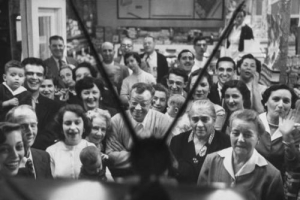 At the turn of the 19th Century, families were treated to the brand new concept of the motion picture. As technology advanced, it became the social norm for friends and families to take in nickelodeons, short films, and silent movies in their local theaters. This lead to the creation of a billion-dollar industry set in Hollywood where movies were shot and shipped across the world. But of course, the only way to see them was in movie houses and movie theaters.
At the turn of the 19th Century, families were treated to the brand new concept of the motion picture. As technology advanced, it became the social norm for friends and families to take in nickelodeons, short films, and silent movies in their local theaters. This lead to the creation of a billion-dollar industry set in Hollywood where movies were shot and shipped across the world. But of course, the only way to see them was in movie houses and movie theaters.
Television arrived in the late ’40s, and changed everything. TV sets appeared in everyone’s homes, creating a completely new way of life. People didn’t have to go out for their entertainment. They could stay in and sit on their sofas, eat their own meals, and enjoy a variety of different programming. The only difference was the budget. In the 1950s, television shows were often made for next to nothing. Same sets were used and rarely changed. Shows like I Love Lucy and Gunsmoke revolved 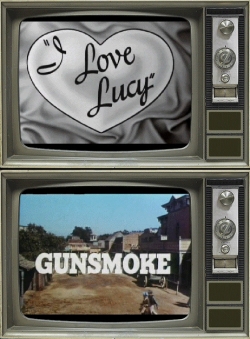 around simple plots and easy storylines that wouldn’t break the banks of the producers, yet still provide the laughs or suspense that a movie would. Still, as their popularity grew, bigger budgets and bigger stars were needed.
around simple plots and easy storylines that wouldn’t break the banks of the producers, yet still provide the laughs or suspense that a movie would. Still, as their popularity grew, bigger budgets and bigger stars were needed.
By the 1970s, the industry had improved. Television found itself with quality programing that generated popular celebrities. But that was exactly the problem. No major motion picture star wanted to have anything to do with the small screen. They wanted to be where the money and the large audiences were. And at this point, it was still film. TV generated some of the biggest stars that would earn their fame through six to eight years on a show. Once they became household names and transitioned to film, many would never return to their roots again.
Two-time Oscar winner Denzel Washington got his start on the medical drama St. Elsewhere in 1982. He stayed with the show for its six-season run, playing “Dr. Phillip Chandler.” The following year, he won his first Academy Award for his supporting role in Glory (1989). Denzel’s popularity and credibility as a serious actor skyrocketed, causing him to take leading roles in feature 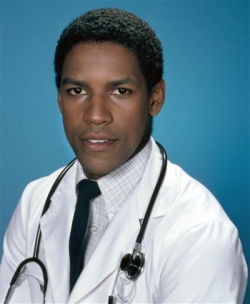 films ever since. Same with A-lister Johnny Depp, who broke into the acting world with “Officer Tom Hanson” in the teen crime drama 21 Jump Street. Depp stayed on for three seasons in the late ’80s — apparently loathing every minute of it. He was released from his contract in 1990, and took offbeat film roles that gained him a cult following. Even comedians have found television as a stepping stone to film. Saturday Night Live has been called “the college for comedians”, often raising them to fame and launching them to film stardom. This long list includes Bill Murray, Eddie Murphy, Mike Myers, Adam Sandler and many more. The point is television was an easier medium to break into for struggling actors and actresses. If their show was a hit, it often meant stardom in bigger and better projects.
films ever since. Same with A-lister Johnny Depp, who broke into the acting world with “Officer Tom Hanson” in the teen crime drama 21 Jump Street. Depp stayed on for three seasons in the late ’80s — apparently loathing every minute of it. He was released from his contract in 1990, and took offbeat film roles that gained him a cult following. Even comedians have found television as a stepping stone to film. Saturday Night Live has been called “the college for comedians”, often raising them to fame and launching them to film stardom. This long list includes Bill Murray, Eddie Murphy, Mike Myers, Adam Sandler and many more. The point is television was an easier medium to break into for struggling actors and actresses. If their show was a hit, it often meant stardom in bigger and better projects.
This was the industry twenty years ago. Drastic changes have happened since then, especially in the last few years. This became very evident to me as I watched the 2013 Primetime Emmy Awards. It used to pale in comparison to the prestigious value or star power that the Academy Awards had. But I couldn’t help but notice all the big celebrities like Matt Damon, Michael Douglas, Jeff Daniels, or even Al Pacino that were up for an award. It was like I was watching the Oscars — partly due to the stars, and partly because of the critical reception and popularity each nominated show had behind it. Though I had been thinking it for a while, now more than ever it seemed to make sense: Television is indeed the new film.
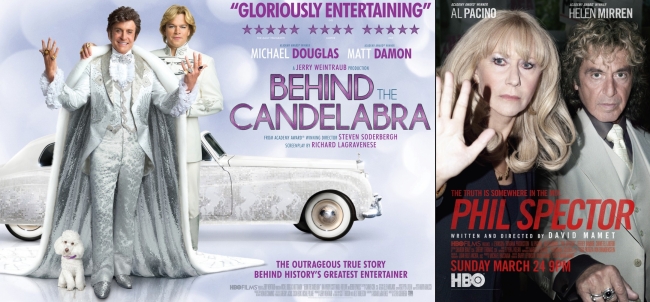
The creation of cable networks like HBO and AMC has helped this concept become reality. HBO relies on subscriptions to fund its programming. AMC is advertising-driven. Yet due to overwhelming popularity, both networks broadcast big-budget shows that dominate television culture. Shows like Game of Thrones, Mad Men, Breaking Bad, and Boardwalk Empire have very aesthetically pleasing shots and storylines that can only be made with large budgets. But it’s these shows that pop up at the Emmys every single year, pop up in conversation every single day, and pop up on the internet through streaming video providers. 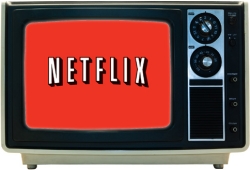 And it’s that last format which has spurred television’s biggest change over the first 13 years of the 21st century, thanks to a company that began as a simple DVD rental service: Netflix.
And it’s that last format which has spurred television’s biggest change over the first 13 years of the 21st century, thanks to a company that began as a simple DVD rental service: Netflix.
This subscription-based film supplier actually started business in the late-’90s. However, it’s only been recently that the service has become a worldwide phenomenon. Nearing 35 million subscribers in the United States alone, Netflix has allowed people to stream television shows and movies over the internet and onto their TV within a matter of seconds. Hundreds of choices are available, including full seasons of television shows. People can now choose to watch an entire series, instead of waiting weekly for new episodes to air, or purchasing the DVD set. This on-demand provider could arguably be as popular and as important as the introduction of television itself in the 1940s. Netflix has even created its own series’, including the hit Orange is the New Black, Season 4 of Arrested Development, and House of Cards.
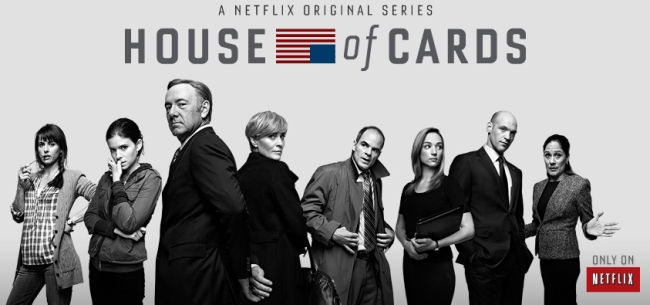
This brings me back to my question — why would major motion picture celebrities act on the small screen? House of Cards is a Netflix-based show that stars actor Kevin Spacey as conniving “Congressman Francis Underwood.” Spacey has been acting in film since the late-’80s, and has earned two Oscars for The Usual Suspects and American Beauty. Besides a quick (but memorable) stint on the TV show Wiseguy in 1988, Spacey rarely appeared on television. So what would be the attraction for an Oscar-winning film star to lead a TV series 20-some years into their career? Spacey’s answer: creativity. The role is a tailor-made fit that suits Spacey and gives him new challenges to play a recurring character. In an interview, he claimed that television drama has changed significantly over 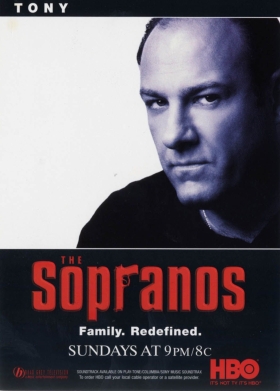 the years, making it a more interesting place to work today.
the years, making it a more interesting place to work today.
We can’t really argue with that statement either. In the not-so-distant past, the major Emmy winners for Best Drama were mostly police shows and mysteries. Gritty thrillers like The Sopranos and Dexter, or comedic dramas like Nurse Jackie or Californiacation, have completely changed what’s possible to show on TV — in terms of violence, nudity, and big-budget sequences.
Spacey isn’t the only award-winning film actor taking advantage of the newly-changed TV medium. Al Pacino has appeared in HBO movies like You Don’t Know Jack and Phil Spector. Hollywood heavyweight Kevin Bacon currently leads the popular thriller The Following, and character actor Jeff Daniels just earned an Emmy for his television turn in The Newsroom. Even legendary directors like Martin Scorsese, David Fincher, and Steven Soderbergh are stepping behind the lens to bring television episodes to life. And it’s all because of big budgets and big audiences.
You often hear friends tell you they spent a weekend watching an entire series. With just a click of a button, they certainly can make that possible. And with budgets that narrow the bridge between television and film, viewers at home are happy with no matter what they watch. So as a Hollywood star looking for a creative opportunity, a satisfying pay cheque, and a way to reach a wide audience, television is certainly looking like the best way to go — despite the status they may already have.
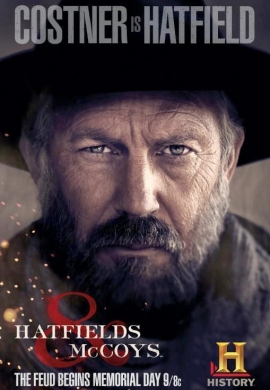 And what could this mean for us watching it all at home? There has been talk that movies may bypass a theatrical release and be available directly for us on the internet or through providers like Netflix. It may be a couple years away, but spectators believe it is certainly on the horizon. We can also expect a few more stars to headline a few more innovative programs in the next few years as well. Whether it’s an epic 12-part miniseries like Hatfields & McCoys, a TV movie like Behind the Candelabra, or a star-studded series like House of Cards, TV is certainly now king. Innovation through daring networks, big budgets, and a surge in availability has brought us where we are today. In the future, we may expect to see even more stars at the Emmy Awards than this past ceremony. And we may expect to see such technological wonders like Avatar or The Hobbit be the norm on television too. In the comfort of our own home, and with the click of a mouse or remote, we can see every second of every new popular show being produced today is this newly-formed on-demand culture — a luxury Lucille Ball and other ’50s TV stars could have never predicted. The fact that no one is now leaving the comfort of their homes to watch a movie in a public cinema is another story.
And what could this mean for us watching it all at home? There has been talk that movies may bypass a theatrical release and be available directly for us on the internet or through providers like Netflix. It may be a couple years away, but spectators believe it is certainly on the horizon. We can also expect a few more stars to headline a few more innovative programs in the next few years as well. Whether it’s an epic 12-part miniseries like Hatfields & McCoys, a TV movie like Behind the Candelabra, or a star-studded series like House of Cards, TV is certainly now king. Innovation through daring networks, big budgets, and a surge in availability has brought us where we are today. In the future, we may expect to see even more stars at the Emmy Awards than this past ceremony. And we may expect to see such technological wonders like Avatar or The Hobbit be the norm on television too. In the comfort of our own home, and with the click of a mouse or remote, we can see every second of every new popular show being produced today is this newly-formed on-demand culture — a luxury Lucille Ball and other ’50s TV stars could have never predicted. The fact that no one is now leaving the comfort of their homes to watch a movie in a public cinema is another story.